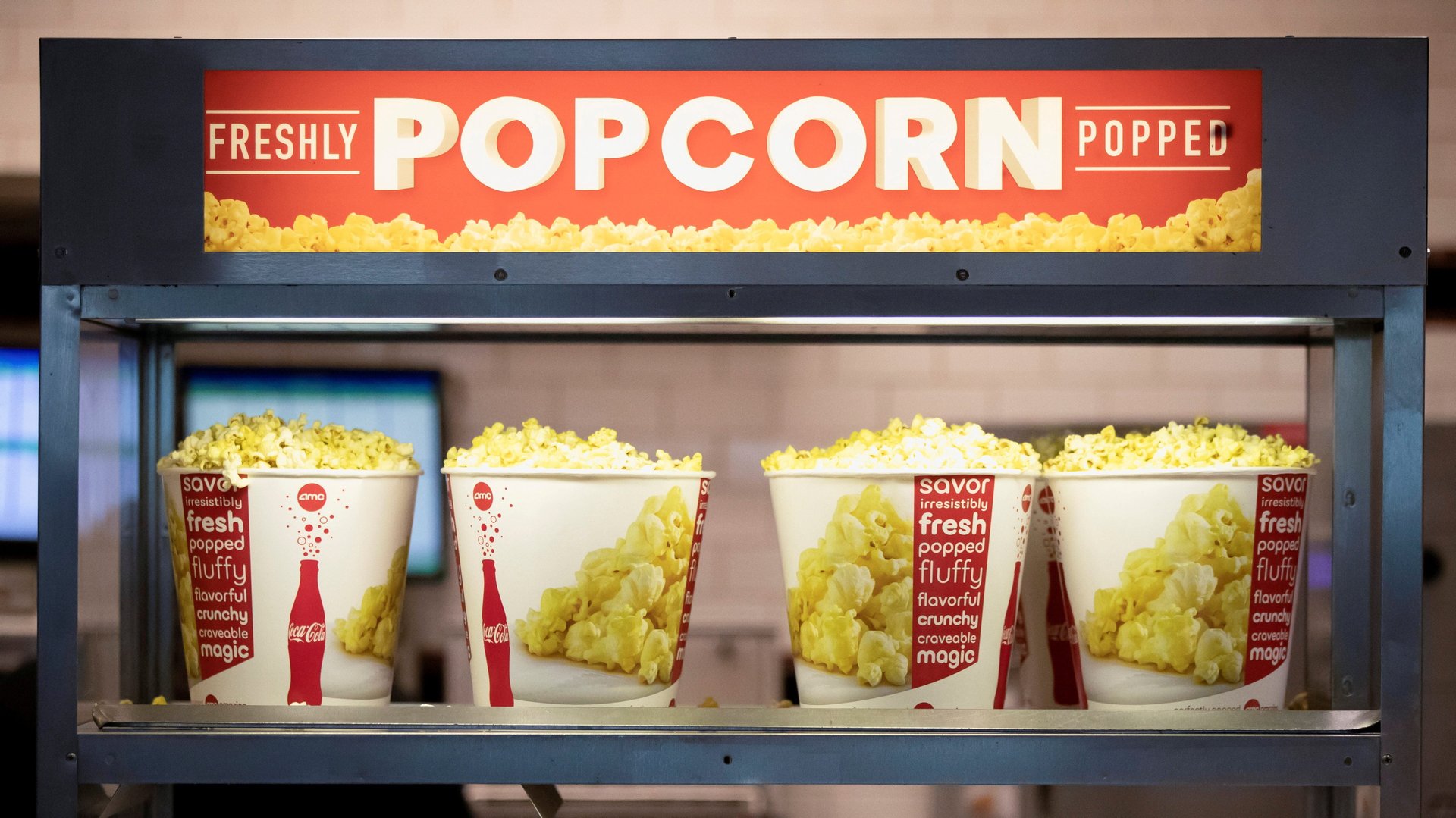Companies look beyond free popcorn to butter up their retail investors
When the movie-theater company AMC offered its stockholders free popcorn, it was, in part, embracing its newfound fame as a memestock. But like many other companies, it was also acknowledging how much more important retail investors have become—and how vital it is to woo them into buying and holding stock, and into voting with management in crunch situations.


When the movie-theater company AMC offered its stockholders free popcorn, it was, in part, embracing its newfound fame as a memestock. But like many other companies, it was also acknowledging how much more important retail investors have become—and how vital it is to woo them into buying and holding stock, and into voting with management in crunch situations.
Five years ago, there were 56 million retail investors in the US, said Jeff Lambert, a veteran in investor relations. Today, thanks to zero-fee trading and apps like Robinhood, “we size the market at 130 million,” he said. Numerous listed firms have seen their shares held by individual investors rise; 80% of AMC stock, for instance, is now owned by retail investors. As a result, Lambert said, corporate executives are newly compelled to think about what these investors might want.
It’s why Coinbase hosted a Reddit AMA before it went public in March, or why Lemonade and Bumble tried a town hall Q-and-A with retail investors, or why the Shyft Group, which manufactures chassis for RVs and delivery vans, has branded, discounted merchandise on its web store.
It’s also why Lambert himself, last year, started TiiCKER, a startup that advises public companies on how to best engage with these small shareholders. (The “ii,” Lambert pointed out, stands for “individual investor.”) Around 77% of US investors, Lambert said quoting a survey, “will actually buy a stock if it came with a perk.” Lambert helps companies figure out what those perks could be: discounts, swag, access to management. “Retail investing is a form of fandom. Investors want to feel special.”
How retail investors went from nuisances to VIPs
This widespread corporate solicitousness about what investors want is a new pattern. Ben Ashwell, who edits a magazine called IR (for Investor Relations), said that IR professionals have talked to him more about retail investors in the last 18 months than in the four or so years before that.
Investor perks aren’t new, of course. Some companies, such as Hershey, Disney, or Ford, have offered them for years. But by and large, many listed firms tended to view retail investors as little better than nuisances, Ashwell said. “It comes from the feeling that retail investors asked a lot of questions disproportionate to the number of shares they held, and that they asked quite different questions from the ones companies were used to hearing,” Ashwell said. “And if one institution owns 20% of your shares and another guy owns 20 shares, you’re likely to spend more time talking to the fund manager in the former.”
Even the few investor-perk programs that existed were convoluted. “If you got a discount on a Ford car based on the number of shares you owned, that program would never have been promoted widely,” Ashwell said. The shareholder would have to write to Ford’s IR team, obtain the necessary documentation, and take it to a dealership where the dealer had probably never heard of this class of discount.
But the surge in retail investing has transformed that dynamic, prompting companies to think about what regular investors want. Perks aside, Ashwell said, “a lot of IR people say that investors will want to ask questions about sustainability or corporate social responsibility.” In the extreme examples, they’ll want a conversation with the CEO, but more often than not, they want to be heard. And increasingly, they want to vote as well; a survey showed 46% of retail investors aged 25-40 plan to vote at annual general meetings this year, the highest such figure for any generation.
In turn, companies recognize that these investors are part-vote bank, part-influencers, and part-customer base. Retail investors tend to vote with management, and they talk up the stocks they buy, Lambert said. And just as importantly, they form a captive pool of customers who will be stick to brands they’ve invested in, just because they want its stock to keep doing well.
“If you own McDonald’s stock, you’ll drive right past KFC and Burger King to eat a Big Mac,” Lambert said. Proctor & Gamble has around 20 million retail shareholders, he reckons: 20 million potential customers who will loyally wash their hair only with Pantene, swaddle their babies only in Pampers, and clean their teeth only with Oral-B, all to see their investments rise. AMC has around 3.7 million retail investors, Lambert estimates—a giant pool of people who might be convinced to visit the cinema in an era of declining theater audiences. “They want to believe that the company they’ve invested in is growing and moving in the right direction,” Lambert said. “And the company wants them to help it grow as well. It’s a virtuous cycle.”